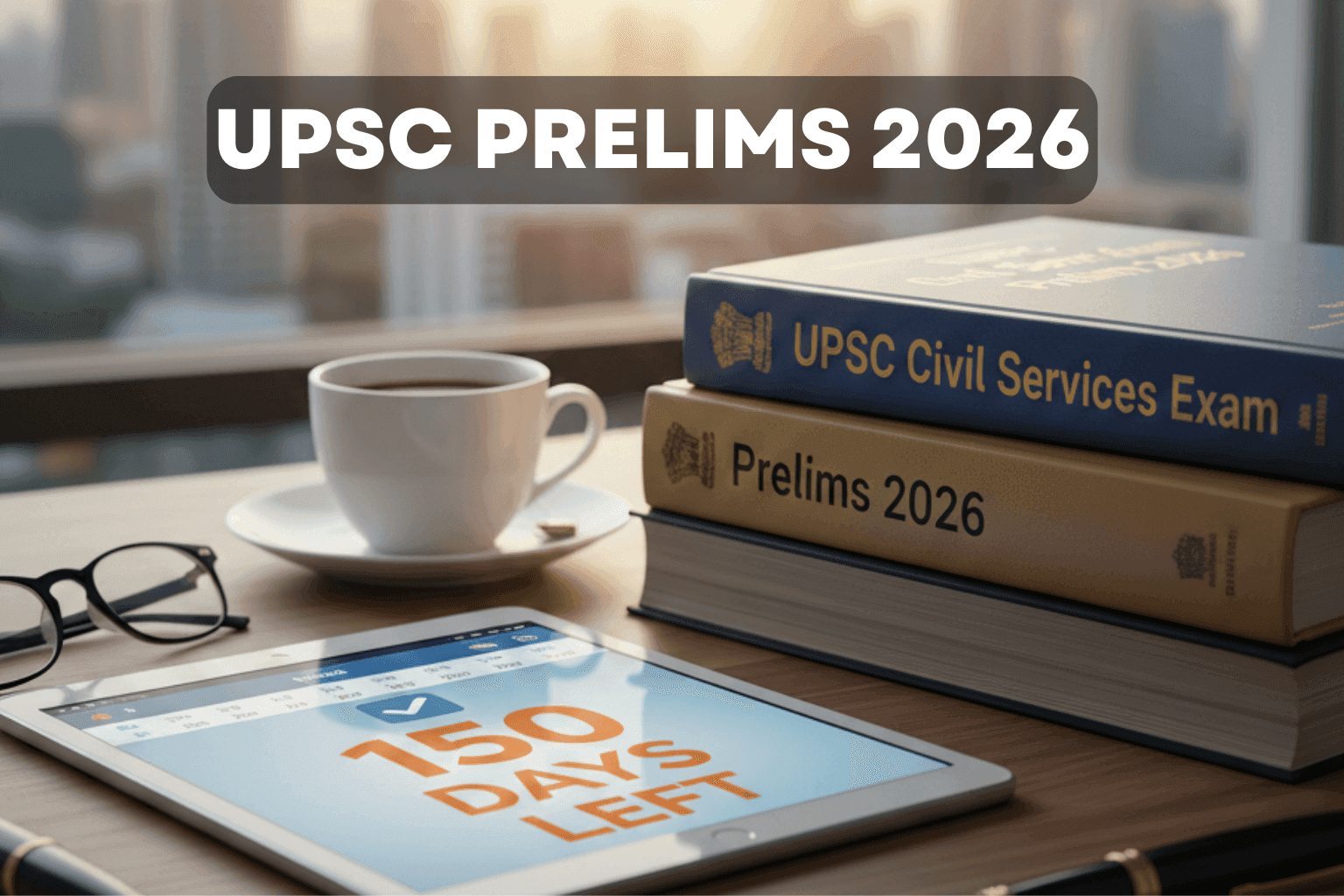Key Strategies for UPSC CSE Success
Feb, 2025
•3 min read
The UPSC Civil Services Examination is an arduous journey that requires a blend of consistent hard work, strategic planning, and maintaining a healthy mindset. Here’s a comprehensive guide to navigating this challenging path:
1. Consistent Hard Work and Dedication
- No Shortcuts: There are no easy routes to success in the UPSC exam. Success demands unwavering dedication, and it's the persistent effort that pays off in the long run. There is no substitute for hard work.
- Time Management: Effective time management is crucial. Create a realistic and personalized study schedule that suits your strengths and weaknesses. Stick to it and ensure regularity in your efforts.
- Self-Discipline: Cultivate a high level of self-discipline. Staying focused and avoiding distractions, especially in this digital age, is essential. Dedicate fixed hours for studying, and ensure consistent productivity each day.

2. Strategic Approach to Preparation
- Understand the Syllabus: A deep understanding of the syllabus is the foundation of UPSC preparation. Break the syllabus into smaller, manageable topics. This makes the preparation process less overwhelming and helps you stay on track.
- Smart Work: Prioritize topics based on their weightage and difficulty level. Focus on high-yield topics that have a recurring presence in the exam. This approach helps streamline your preparation effectively.
- Regular Revision: Consistent revision is vital. Regularly revisit the topics you’ve studied to keep them fresh in your mind. This helps in better retention, particularly when it comes to vast subjects like General Studies.

3. Effective Study Techniques
- Active Learning: Engage actively with the material. Don’t just passively read the books. Take notes, highlight key points, and summarize chapters in your own words. Discuss difficult concepts with fellow aspirants or mentors.
- Mind Mapping: Visualization techniques, like mind maps, help in understanding complex concepts and improve memory retention. It can also help you connect ideas across subjects, making revision more efficient.
- Mock Tests: Regular mock tests are an essential part of preparation. They help simulate exam conditions, boost your time management skills, and identify your strengths and weaknesses. Focus on improving areas that need attention.
- Answer Writing Practice: Regular practice in answer writing is critical for the Mains exam. It helps you structure your thoughts and articulate them clearly within the given time frame.

4. Positive Mindset and Mental Health
- Stay Positive: Maintaining a positive attitude throughout the preparation is crucial. Keep your motivation high and remain resilient in the face of setbacks. A positive mindset helps in overcoming challenges and sustaining long hours of study.
- Manage Stress: UPSC preparation can be mentally taxing. Practice stress-relief techniques like meditation, yoga, or spending time outdoors to maintain a calm and clear mind. These activities help reduce anxiety and improve focus.
- Seek Support: Don’t hesitate to seek emotional and academic support from family, friends, or mentors. Having a strong support system helps manage stress and maintain mental clarity.
5. Balancing Personal Life and Studies
- Prioritize Health: Both physical and mental health should be a priority. Regular exercise, proper sleep, and a balanced diet are essential to stay energized and focused throughout the preparation process.
- Maintain a Social Life: While UPSC preparation demands dedication, it’s important to strike a balance. Spend quality time with family and friends to avoid burnout. Healthy social interactions help refresh the mind and keep you motivated.
- Pursue Hobbies: Engage in hobbies to relax and recharge. Whether it’s reading, painting, or playing a musical instrument, hobbies provide a mental break and allow you to return to your studies with a fresh perspective.

Final Words
Success in the UPSC exam isn’t just about working hard; it’s about working smart and maintaining a balanced approach. By following a strategic study plan, actively engaging with the material, practicing consistently, and taking care of your mental and physical health, you can tackle the challenges of the exam with confidence. Remember, there are no shortcuts to success, but consistent effort, coupled with a positive mindset, can help you achieve your goal of becoming a civil servant.


